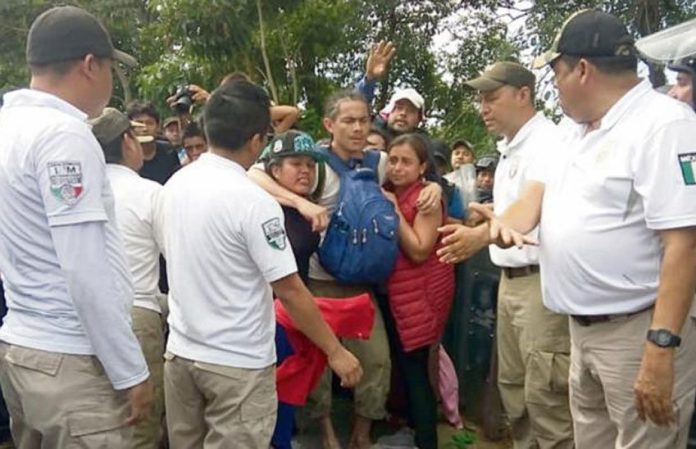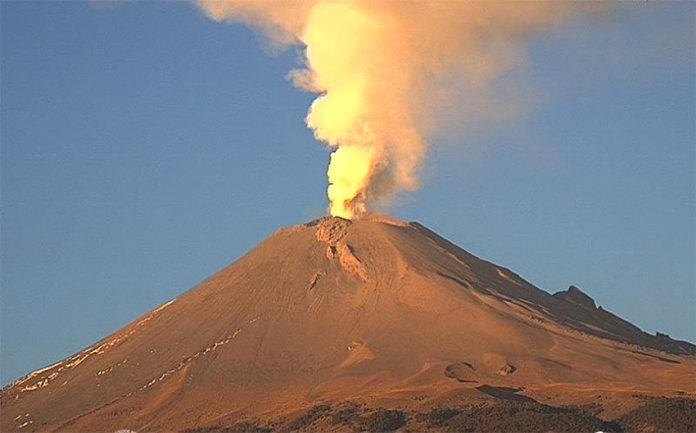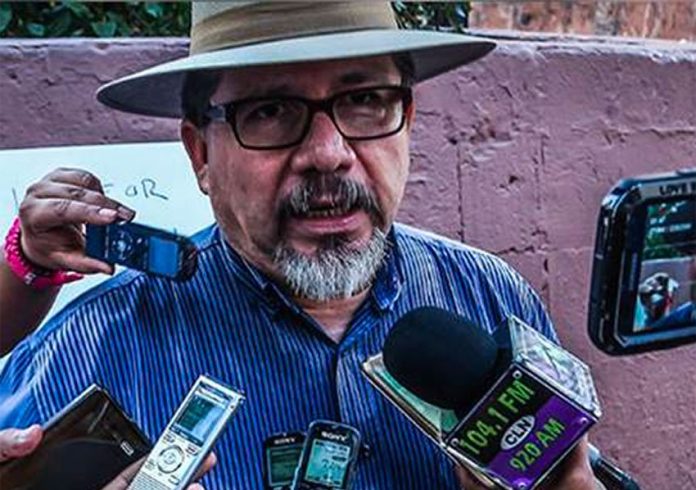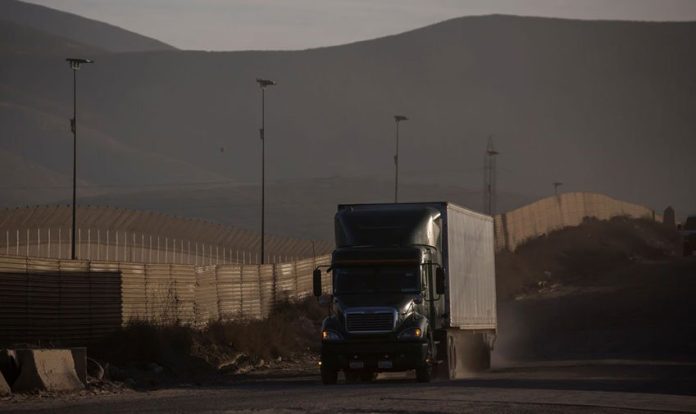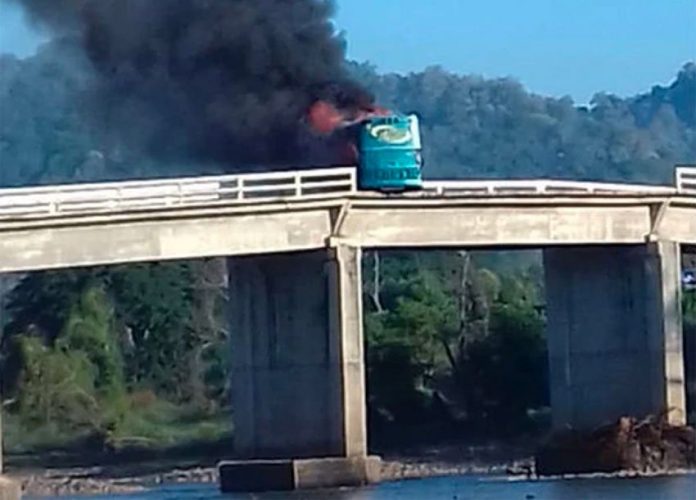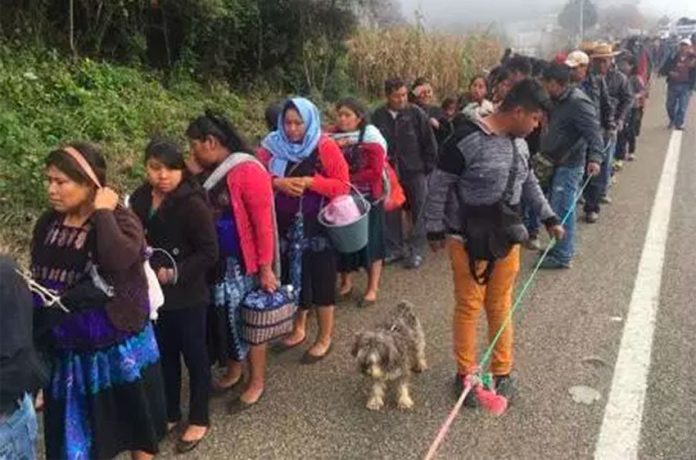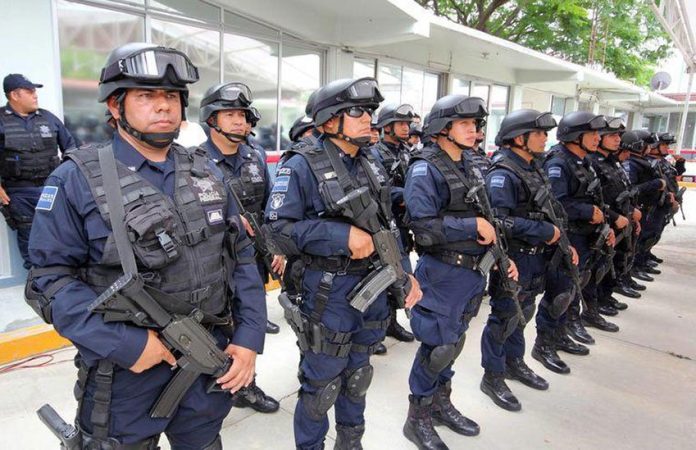A fifth caravan of Central American migrants was stopped in its tracks yesterday by immigration agents and Federal Police after illegally crossing Mexico’s southern border.
A group of more than 300 people, mostly from El Salvador, arrived in the Guatemala border town of Tecún Umán earlier this week and yesterday morning waded across the Suchiate river to begin the long journey through Mexico to the United States border.
But the migrants only made it as far as Metapa, a town 18 kilometers north of the border, before they were intercepted by National Immigration Institute (INM) agents and anti-riot police.
Senior INM official Samuel Guerrero Mares explained to the Central Americans that they couldn’t continue their journey without first applying for refugee status in Mexico.
One of the migrants responded: “all we ask is that you let us pass, we come in peace, we are the most organized caravan.”
After officials refused that request, scuffles broke out and the migrants refused to board vehicles to be taken to immigration offices.
However, an hour later they relented and agreed to accompany the officials to an INM facility in Tapachula.
A pregnant Salvadoran woman, who had walked for five hours from the border to Metapa with her husband and two-year-old son, fainted during the commotion and was taken for treatment at the Tapachula General Hospital.
Immigration officials estimated Tuesday that there are about 13,800 Central American migrants in Mexico whose destination is the United States.
Several thousand have already reached Tijuana, where they await the opportunity to lodge asylum requests with United States authorities.
According to a report today in the newspaper El Universal, preparations are being made in Honduras for the departure of a “mega-caravan” from San Pedro Sula on January 15, 2019.
Meanwhile, according to a report published late last night by The Washington Post, the Trump administration is preparing sweeping new measures that would force Central Americans who arrive at the border to wait in Mexico while their asylum claims are processed.
United States Department of Homeland Security (DHS) memos obtained by The Post indicate that asylum seekers who cannot establish a “reasonable fear” of persecution in Mexico will not be allowed to enter the U.S.
The plan called “Remain in Mexico” would represent a major departure from current screening procedures, which usually allow asylum seekers who establish a fear of returning to their country of origin to stay in the United States until they have the opportunity to plead their case before an immigration judge.
President Trump refers to the current system as “catch and release” and has pledged to terminate it.
Under the new plan, which two DHS officials told The Post could be implemented as soon as tomorrow, the bar to gain immediate admission to the United States would be set higher because asylum seekers would have to satisfy authorities that they specifically fear persecution in Mexico.
While Mexico’s border cities – including Tijuana – are among the most dangerous in the country, proving a reasonable fear of persecution to U.S. authorities could still be a difficult proposition.
According to the DHS memos, border authorities will tell asylum seekers that “if you are determined to have a reasonable fear of remaining in Mexico, you will be permitted to remain in the United States while you await your hearing before an immigration judge.”
However, if the migrants fail to demonstrate that reasonable fear, officials will tell them that they will remain in Mexico.
Despite the officials’ assertion that the “Remain in Mexico” plan could be adopted tomorrow, DHS spokeswoman Katie Waldman issued a statement late yesterday saying there are no immediate plans to implement the new measures.
“The president has made clear — every single legal option is on the table to secure our nation and to deal with the flood of illegal immigrants at our borders,” the statement said.
“DHS is not implementing such a new enforcement program this week. Reporting on policies that do not exist creates uncertainty and confusion along our borders and has a negative real world impact. We will ensure — as always — that any new program or policy will comply with humanitarian obligations, uphold our national security and sovereignty, and is implemented with notice to the public and well coordinated with partners.”
A Mexican official, who spoke to The Post on condition of anonymity, said that under Mexican immigration law, migrants seeking asylum in another country are not permitted to remain in Mexico.
However, with around 6,000 migrants currently in the Tijuana area facing long waits just to have the opportunity to lodge an asylum claim, Mexico appears set to host the caravan members for several months, a situation that has provoked an outbreak of anti-migrant sentiment in the border city.
Source: El Universal (sp), The Washington Post (en)


